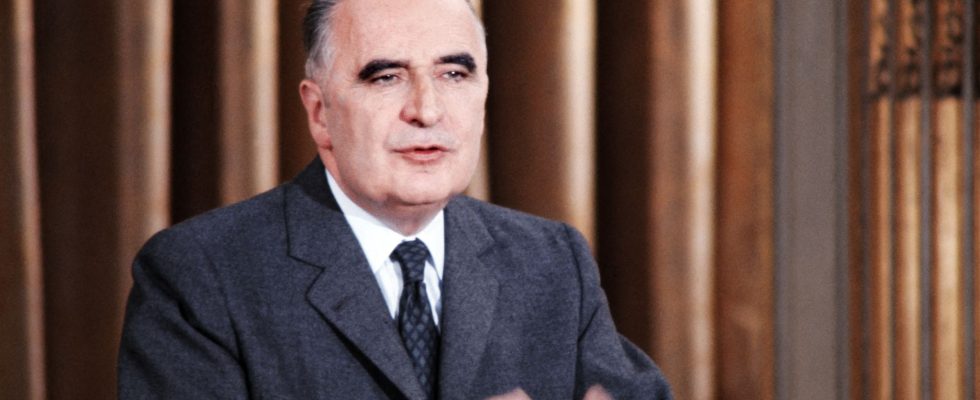It may seem surprising to associate the term “ecology” with Georges Pompidou. At a time when this word was not yet part of the common vocabulary, the native of Montboudif was first known for his passion for automobiles. Barely appointed Prime Minister, hadn’t he arrived in a Porsche 356 in the courtyard of Matignon? In 1967, wasn’t it he who inaugurated the expressway on the right bank of the Seine and provided unfailing support for the Paris ring road project? Above all, General de Gaulle’s successor had an objective which dominated all others, an ambition apparently irreconcilable with environmental protection: “To make France a great industrial nation”.
In this area as in so many others, the thought and action of Georges Pompidou cannot however be reduced to pre-established categories. During his long walks as a child on the plateaus of Haute-Auvergne, he learned to love nature and the landscapes that shape France. Like the character of Morel in The Roots of Heaven, this novel by Romain Gary which resonated so much with him, he understood that what we did not yet call “ecology” is first and foremost a fight to save the beauty of the world. He was aware that, for too many years, pollution had been tolerated, nuisances accepted and natural sites ravaged on the altar of modernity. Above all, he knew the close link that exists between man’s self-respect and the quality of his living environment.
Upon his accession to the Elysée, he therefore placed the environmental issue at the heart of his action. On February 28, 1970 in Chicago, this “windy city” which, through its avant-garde architecture and the place it gives to the automobile, embodies modernity in what is most fascinating as much as the ravages of urban civilization, he called for the creation of “an environmental morality.” Two years before the publication of the Meadows report, Limits to growthhe was the first Western head of state to emphasize that “man’s control over nature has become such that it carries the risk of destroying nature itself.”
But he didn’t stop there. Pompidou, who knew that the credibility of the political leader lies in his ability to translate his words into actions, implemented measures such as the first regulation on industrial chimneys, the birth of “green classes”, the creation of the National Park of the Cévennes or the preparation of a framework law against noise. Then, on January 7, 1971, he took inspiration from the British example to create, for the first time in France, a Ministry of the Environment. He entrusted it to a young Normal student who was as talented as he was enthusiastic, Robert Poujade. Despite the sarcasm of Valéry Giscard d’Estaing who, powerful Minister of Finance, told him, “your ministry is interesting, it should not cost the State anything”, Poujade benefited from the unconditional support of the President of the Republic.
The mayor of Dijon needed it all the more as many of the difficulties that our current leaders are facing were in the making. Fifty years before the excesses of anger which accompany any attempt at ecological taxation, the question of the social acceptability of environmental policies was already raised. As Georges Pompidou lucidly noted, “the problem is to ensure that the right environment is compatible with progress”.
There is one area in particular in which he ensured that this was the case, agriculture. Rejecting any outdated vision on the matter, the former member of Cantal understood that, if our agriculture wanted to remain competitive, it had no other choice but to modernize. He thus castigated the “fights for delay, the rearguard battles” of certain Auvergne breeders who refused cutting-edge techniques and continued, at that time, to produce cheeses of varying quality. However, Pompidou was not the champion of ultra-productive and environmentally destructive agriculture. In contrast to a dogmatic vision of ecology fueled by ignorance and prejudice, he affirmed his conviction that we could only preserve our nature and our landscapes by placing the agricultural world at the heart of ecological thought.
“France must at no cost become a dust of urban agglomerations scattered in a desert, even green and maintained,” he warned. Saving nature, which will tomorrow be man’s first need, means saving inhabited and cultivated. A nature abandoned by the peasant, even if it is maintained, becomes an artificial nature and I would say a funereal nature.” At a time when extremes of all sides want to oppose agriculture and ecology, these words from Georges Pompidou remain more essential than ever.
* Jérémie Gallon is Managing Director for Europe at McLarty Associates. He is the author of Henry Kissinger, the European (Gallimard).
.
